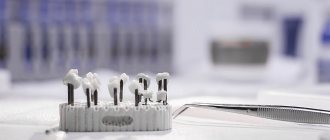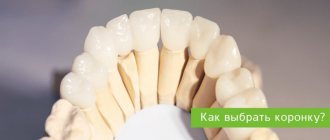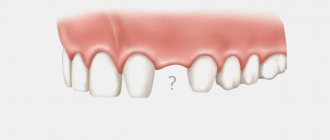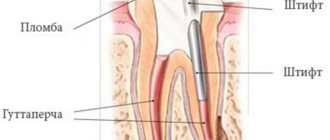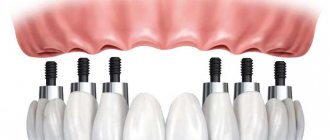Severely damaged or lost teeth are always a serious problem! The absence of teeth spoils the beauty of a smile, causes problems with the quality of chewing food, and in addition, it can even cause distortion of facial features and lead to the appearance of premature wrinkles. Therefore, if you have at least one damaged or extracted tooth in your mouth, you need to urgently start restoring it and contact a dental clinic for this.
In modern dentistry, various technologies have been developed that make it possible to replace the front teeth or to qualitatively restore chewing dental units. This article is devoted to a review of the methods by which teeth can be placed. We will look at their features, pros, cons, and also tell you how much it costs to have a tooth installed in Moscow.
Calculate the cost of treatment by taking a short test in 20 seconds!
Do not delay your treatment, because in this matter time plays against us.
Five important questions about how to insert teeth
Before describing technologies for restoring lost teeth, we will briefly answer the most popular questions that interest almost all patients who are faced with the need for prosthetics for the first time.
- Do I need to replace teeth if I have lost them?
Dentists recommend doing this immediately and without fail. Even if the emptiness in the dentition is unnoticeable, do not delay your visit to the clinic. Lack of timely treatment leads to resorption of bone tissue, displacement of the dentition, deterioration of the bite, and can cause changes in the shape of the face and problems with the digestive system. - What teeth can be inserted?
Absolutely everything: natural incisors, canines, molars and premolars can be successfully replaced with dentures. - Does it hurt to put teeth in?
Many patients familiar with the methods of Soviet dentistry are concerned about the question of whether it hurts to insert teeth? We hasten to reassure you: modern methods of anesthesia make the treatment absolutely painless. - How long does it take to insert teeth?
It all depends on the treatment method, the efficiency of the doctors and the dental laboratory. Temporary teeth can be inserted in one visit; permanent dentures require more time. - What is the name of the doctor who inserts teeth?
The doctor who inserts teeth and performs prosthetics is an orthopedic dentist, but treatment and preparation for procedures is usually carried out by a whole team of specialists: dental surgeons, dental therapists, dental technicians.
All modern methods of restoring lost teeth
Just 20 - 30 years ago, metal teeth in the front part of the jaw were not considered something shameful. Moreover, many dreamed of inserting gold teeth, since a golden smile was associated with wealth. Today, dental treatment is technologically advanced, effective and painless, and there are many more ways to insert teeth. Despite the variety of dental services, it is very important for the patient to find good dentistry and a competent specialist who will provide professional assistance. There are hundreds of reviews online where people complain that their teeth were inserted poorly or that the inserted tooth hurts. Unfortunately, such consequences are not uncommon, and their elimination requires repeated treatment and additional costs.
All prosthetic methods are divided into two types: single restoration and complex prosthetics (when you need to replace several lost units or insert complete teeth). Single restoration in most cases is carried out using special inlays (veneers or lumineers) and crowns that are installed on natural teeth or implants. When several teeth are lost or completely edentulous, bridges or removable dentures are used, supported by implants, natural teeth or the oral mucosa. Let's look at these designs in more detail and start with regular dental crowns.
- Metal-ceramic teeth
The crown is based on a metal frame, onto which layers of ceramic are applied under the influence of high temperatures. Such designs are relatively inexpensive and are used for prosthetics of front teeth. Metal tends to oxidize, so over time a bluish outline may form around the gums, which has a bad effect on aesthetics. - Ceramic tooth
These crowns are indistinguishable from natural teeth. Modern ceramics are installed both on the anterior units and on the chewing teeth. The price of ceramic crowns is perhaps their only drawback. The cost of such products is higher than that of similar structures using a metal base. This is why not every patient can afford to have a ceramic tooth inserted. - Zirconium teeth
Today, zirconium dioxide crowns are considered the best of similar designs available on the market. They are as durable as metal crowns, and in aesthetics they are not inferior to ceramic structures. With the help of zirconium crowns, teeth are successfully inserted in any area of the jaw, but when planning to restore lost units, take into account the fairly high cost of such crowns.
Studying price lists
After choosing a clinic, you need to understand how much it costs to insert a tooth, what are the prices per “unit” for a particular method. The cheapest option would be a removable plastic prosthesis, the most expensive would be an implant. If you need to insert a tooth using this method, the price may be quite reasonable, but if you need to insert the teeth completely, then it is better to use the “all on 4” method. In this case, only four implants are installed, onto which the entire jaw structure is attached. This not only makes the procedure cheaper, but also reduces time costs.
If you need to replace several teeth, you can use clasp or bridge structures. They are much cheaper than implants, but they will not protect you completely from loss of bone tissue.
Which crown to choose
Most of all, patients are interested in the cost of crowns and their aesthetics. Of course, you can choose a prosthesis yourself, focusing on your financial capabilities and ideas about beauty. But it is better if a doctor does this. Before starting the restoration of the dentition, the dentist evaluates the condition of the root system, gums, mucous membrane, tissues of the root part and cervical area. When choosing a prosthetic method, it is important to exclude all contraindications. They differ depending on the method of tooth restoration. The most serious are diseases of the immune system, oncology, uncompensated diabetes mellitus and periodontal inflammation. The doctor’s task is to choose the safest prosthetic option for the patient and the one that best suits the clinical picture.
Implantation: indications and benefits
Implantation is the most advanced dental technique that allows you to insert a tooth in place of an extracted one.
- Implants eliminate dental defects of any location and extent.
- People quickly get used to the implants. There is no discomfort, no sensation of the presence of a foreign body in the oral cavity, no problems with chewing food.
- Before implantation, there is no need to grind and depulp adjacent teeth; they remain healthy.
- Implants do not need to be changed or adjusted. With proper implantation and personal hygiene, artificial roots can last a lifetime.
- Even under increased loads, there is no risk of implants falling out or loosening.
Is it difficult to get used to wearing dentures?
Most patients note that getting used to the structures did not cause them any significant difficulties. If they are made and installed correctly, then there should be no painful sensations. However, temporary discomfort may be present, but this usually resolves within a few weeks.
Doctors note that the process of addiction is purely individual. Some people feel great almost immediately, others cannot come to terms with the feeling of a foreign body in the mouth even when restoring 1 tooth (especially if a removable option was chosen).
How is an implant inserted?
The essence of this technique is to implant a titanium root into the jaw, on which a crown is subsequently installed. On average, implant healing takes from 2 to 6 months. During this time, a temporary orthopedic structure is installed for the patient’s convenience.
There are protocols for immediate implantation. Modern structures can be inserted after tooth extraction and immediately loaded with a prosthesis. Many patients are interested in whether it is painful to insert a dental implant. In fact, implants are installed quite quickly (15 - 20 minutes per tooth), and an injection of anesthesia allows you not to feel pain. If you have severe dental phobia, the doctor will suggest inserting teeth under anesthesia or sedation.
Installation of the prosthesis immediately after removal (within 24 hours)
Clients are always interested in how many days after an injury or surgery they can get dentures. Dentistry has express methods for instantly eliminating smile defects. There is no need to hide an ugly gap from others and experience discomfort when communicating! We are talking about simultaneous implantation, which is performed in one stage. The dentist installs an artificial root into the resulting hole and immediately puts on a crown, which is prepared in advance. It creates a load on the jaw apparatus and prevents atrophy.
Another option is immediate dentures, which are temporary and are designed for 3-4 months of use.
Methods for restoring anterior and chewing teeth
In the absence of teeth, the best way would be implantation, but if you have contraindications to this procedure, there are alternative options - installing a bridge with grinding of adjacent elements or a soft removable denture with clasps.
The same designs are used for chewing teeth: crowns, implants, removable and bridge dentures. The peculiarity of chewing teeth is that they are subject to heavy loads, so especially strong crowns made of zirconium dioxide or metal-ceramics are usually installed in this section.
If you need to insert 1 tooth
To restore one badly damaged tooth, an orthopedist may suggest a crown. If a tooth is missing, a bridge or implantation is required.
If you need to insert a tooth in place of a removed one
After removing a tooth, it is advisable to insert it within 1 – 2 months, since after some time the processes mentioned above begin to occur. If you want to completely restore the functionality, aesthetics, and anatomy of your tooth, dental implants are your best choice.
If you need to insert three teeth
In modern dentistry, to replace three lost teeth (in a row), a bridge prosthesis on implants is usually installed. If there is a limited budget or there are contraindications to implantation, the prosthesis is placed on the ground adjacent teeth.
If you need to completely insert teeth
Teeth restoration in cases of complete edentia is carried out using removable dentures. The best option is considered to be designs supported by implants, which guarantee the patient a good quality of life. In other cases, removable dentures are used with support on the mucous membrane and soft tissues.
In just 1 day you can achieve your goal and completely change your life.
As the name implies, with one-stage implantation with immediate loading, the entire prosthesis will be fixed immediately, that is, immediately, without waiting for the implants to fully engraft. But, of course, subject to certain requirements: when choosing implant models that can actually be loaded with a prosthesis (manufacturers write about this in the review of their products), with their correct positioning in the jawbone, with good primary stability, and also when installing a certain type of prosthesis . In particular, during the manufacture of which a metal base is created that will stabilize the installed implants, that is, keep them stationary even when you begin to actively use new teeth.
Doctors at the Smile-at-Once center are followers of the Immediate Load Implantation school (which translates from English as “implantation with immediate load”) and were among the first in Russia to use this technique in their practice. The clinic’s specialists have certificates from the International Foundation of Implantologists, Nobel, Straumann, Oneway Biomed, and are also accredited masters of immediate loading with the right to train Russian colleagues.
Undoubtedly, implantation with immediate loading in the absence of teeth is more advantageous from all sides: bone grafting is not needed (even in a complex upper jaw), there is no need to return to removable dentures, and rehabilitation is faster.
In fact, you get new teeth in 1 day, with a lifetime guarantee on treatment. One-stage implantation with immediate loading
| SIGN OF COMPARISON IN THE ABSENCE OF ALL TEETH | COMPLETE TWO-STAGE IMPLANTATION WITH DELAYED LOADING | COMPLETE ONE-STAGE IMPLANTATION WITH IMMEDIATE LOADING |
| The cost of implantation and prosthetics (in rubles, the price is “turnkey”) | 900,000 for 2 jaws on implants | from 200,000 for 1 jaw on implants (depending on the protocol and brand of implants) |
| Duration of treatment | from 2-4 to 18 months | no more than 7 days |
| Number of visits to the doctor | 10-25 | 3-5 |
| Number of hours spent with a doctor | from 7 to 30 hours | to 10 |
Is it possible to insert teeth without grinding down the adjacent ones?
Before installing classic dentures with fixation on natural teeth, preparation is required. Without grinding, restorative procedures are carried out using plastic structures with special clasp hooks that clasp the neck of a healthy tooth and thus hold the prosthesis in the oral cavity. The production and installation of such prostheses occurs much faster than in the case of overlay prostheses on implants, but you should not count on recovery in one day. If we are not talking about temporary prostheses, the creation of structures, fittings, and corrections can take several weeks.
Contraindications
Thanks to the variety of techniques for each person, you can choose a way to restore the beauty of your smile. All dentures have indications for use and contraindications. The decision to replace a lost element after amputation is made by the attending physician based on the results of dental diagnostics, taking into account the age and condition of the body.
As for the general reasons, experts do not recommend performing surgical procedures if you are pregnant, undergoing rehabilitation after a serious illness or complex operation, or are sick with ARVI. You should not install implants or dentures during periods of exacerbation of chronic diseases, exhaustion or acute stress.
Tell your doctor if you are allergic to anesthetics or take any medications. Some drugs affect blood clotting and the rate of tissue regeneration. This can create problems during the procedure and while the wound is healing.
Often, poor oral hygiene is an obstacle to treatment. This temporary contraindication can be eliminated through therapeutic measures.
Treatment prices: which teeth are better to insert on a limited budget
The cost of restoring one or more teeth depends on the treatment method and your budget. The most expensive treatment involves the use of implants. The cheapest thing is dental crowns.
| Insert teeth under anesthesia | An anesthesia injection costs on average 500 - 800 rubles. Treatment under general anesthesia - from 4,000 rubles (30 minutes). Sedation will cost from 1,500 rubles for half an hour. |
| Insert ceramic tooth | From 15 thousand rubles depending on the level of the clinic |
| Insert metal ceramics | From 9 thousand rubles. Depends on the metal alloy used |
| Insert a dental implant | 15 - 25 thousand for installing a budget brand of implants. 35 -50 thousand for a premium implant |
| Insert teeth completely | A removable denture on implants for one jaw costs on average from 120 to 250 thousand rubles (depending on the number of implanted implants and their brand). A regular removable denture will cost 25-50 thousand for one jaw |
| Insert zirconium teeth | From 25 thousand rubles depending on the level of the clinic. |
Where to get teeth inserted in Moscow?
There are thousands of clinics in the capital, most of which offer almost all types of dental restoration (crowns, implants, removable and bridge dentures). Choosing a clinic is quite difficult, so we advise you to pay attention to important nuances. Study the clinic’s website: it should contain detailed information about specialists, treatment methods and technologies, as well as relevant diplomas and certificates. Read patient reviews about dentistry on third-party resources. Directly during the consultation, do not be afraid to ask questions and find out details. A good doctor will always give comprehensive information and offer various treatment options. The search engine on our website will help you find reliable dentistry.
